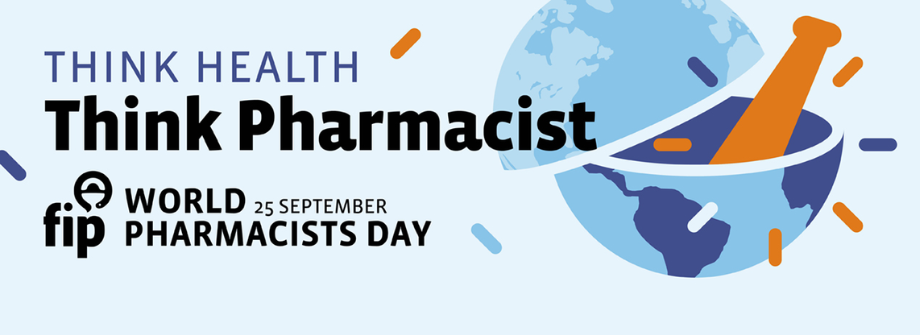
By Nick Duncan, Consultant haematology pharmacist, Birmingham, UK. On behalf of the Pharmacist Committee of the EBMT
The EBMT Pharmacist Committee is delighted to promote World Pharmacists Day on Thursday 25 September. This event was established by the International Pharmaceutical Federation (FIP) in 2009, and the theme for 2025 is “Think Health, Think Pharmacist.”
Within the EBMT community, pharmacists are key members of the multidisciplinary team, ensuring the safe, appropriate and cost-effective use of medicines in our complex and high-risk patients. The Pharmacist Committee has developed and published recommendations about our role (link to paper here) and it is striking that we identified 32 different key activities for clinical pharmacists and clinical pharmacologists. These encompass diverse areas such as compounding and supply of cytotoxics, medication review, identification of adverse drug events and potential drug interactions, therapeutic drug monitoring (TDM), staff and patient education, guideline development and support for clinical trials. So, it is not a surprise that the hospital pharmacist is never standing still! And it is exciting to see pharmacists continuing to expand their roles: in many countries we now have prescribing qualifications and can be found working alongside medical and nursing colleagues, not just on inpatient wards but also in outpatient clinics, delivering a truly multidisciplinary service to our patients.
However, we know from a recent pan-European survey that our committee undertook, that not all transplant centres have designated clinical pharmacists/pharmacologists supporting their HSCT/ATMP programmes. Given the multitude of benefits that these professions can offer, we would hope that the next time we undertake such a survey, 100% of centres have at least one clinical pharmacist or pharmacologist on board!
The EBMT Pharmacist Committee is passionate about education and training and ensuring that our colleagues have the necessary skills to cope with the ever-changing clinical landscape that we operate in. We have recently written a practical guide to busulfan TDM and have started to deliver a programme of educational webinars. We are also developing a training passport to support the pharmacy specific requirements of the JACIE certification program. Each year there is a designated Pharmacists Day at the EBMT Annual Meeting and in 2025 we celebrated our 10th Anniversary with a varied programme of talks, including transplantation for autoimmune diseases, nutrition, access to drugs and dealing with drug shortages as well as recent developments in CAR-T in BiTE therapies. We are confident that the programme will be even better for 2026 and would encourage our pharmacy and pharmacology colleagues within the EBMT to come and join us in Madrid (EBMT 2026)